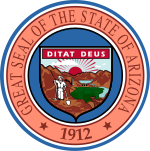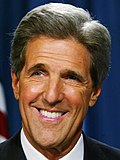
Each of the 50 U.S. states, the District of Columbia, and territories of the United States holds either primary elections or caucuses to help nominate individual candidates for president of the United States. This process is designed to choose the candidates that will represent their political parties in the general election.

From January 14 to June 8, 2004, voters of the Democratic Party chose its nominee for president in the 2004 United States presidential election.

The 2004 Iowa Democratic presidential caucuses were an election held on January 19 as part of the United States presidential primary. They were the first major test of some of the leading contenders for the Democratic Party's nomination as its candidate for the 2004 United States presidential election.

Mini-Tuesday was the name given to the February 3, 2004 U.S. presidential primary where several states, which to that point had participated in "Super Tuesday," cast their votes for the Presidential nominees of the 2004 Presidential election. Mini-Tuesday was also called Super Tuesday I. With the large number of states moving their election dates up to Mini-Tuesday for the 2008 election cycle, pundits have largely shied away from using the term again, instead choosing to reappropriate the term "Super Tuesday" to better represent the primaries held on that approximate date. The date is also known as "Super Duper Tuesday," "Giga Tuesday," and "Tsunami Tuesday," among others, with the term "Mini Tuesday" falling to apparent disuse for the time being.
The following is a timeline of events during the 2004 U.S. presidential election:
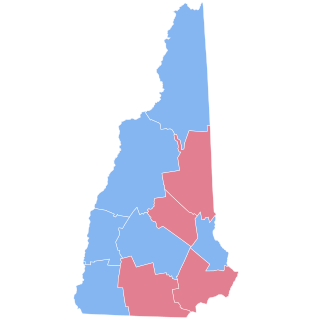
The 2004 United States presidential election in New Hampshire took place on November 2, 2004, and was part of the 2004 United States presidential election. Voters chose four representatives, or electors to the Electoral College, who voted for president and vice president.

From January 3 to June 3, 2008, voters of the Democratic Party chose their nominee for president in the 2008 United States presidential election. Senator Barack Obama of Illinois was selected as the nominee, becoming the first African American to secure the presidential nomination of any major political party in the United States. However, due to a close race between Obama and Senator Hillary Clinton of New York, the contest remained competitive for longer than expected; neither candidate received enough pledged delegates from state primaries and caucuses to achieve a majority, without endorsements from unpledged delegates (superdelegates).
The 2004 United States presidential election in Tennessee was held on November 2, 2004, and was part of the 2004 United States presidential election. Voters chose 11 representatives, or electors, to the Electoral College, who voted for president and vice president.

The 2004 United States presidential election in South Carolina took place on November 2, 2004, as part of the 2004 United States presidential election which took place throughout all 50 states and D.C. Voters chose eight representatives, or electors to the Electoral College, who voted for president and vice president.

The 2008 United States presidential election in Iowa took place on November 4, 2008, as part of the 2008 United States presidential election. Voters chose seven representatives, or electors to the Electoral College, who voted for president and vice president.
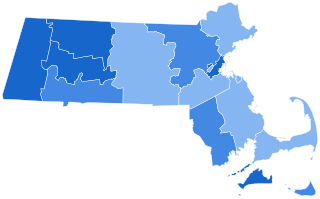
The 2008 United States presidential election in Massachusetts took place, as in all 50 states and D.C., as part of the 2008 United States presidential election of November 4, 2008. Voters chose 12 representatives, or electors to the Electoral College, who, in turn, voted for the office of president and vice president.

The 2004 Missouri Democratic presidential primary on February 3, 2004 determined the recipient of the state's 88 delegates to the Democratic National Convention in the process to elect the democratic nominee for President of the United States. It was an open primary.

The District of Columbia held a primary on January 13, 2004 and caucuses on February 14, 2004 during the 2004 Democratic presidential primary season. Delegates were only allocated in the February 14 caucuses.

The 2004 North Dakota Democratic presidential caucuses were held on February 3 along with six other states. Frontrunner John Kerry had earlier won New Mexico, Missouri, Arizona and Delaware by large margins. Army General Wesley Clark had hoped to win some primaries this day but got only second and third place finishes. Howard Dean just months earlier Dean had narrowly been leading in polls over Wesley Clark. The endorsements were former governor George A. Sinner who endorsed Wesley Clark. The results were Kerry with 51% to Wesley 24% and Dean at 12%.

The 2004 California Democratic presidential primary was held on March 2, 2004, the same day as the Republican primary. Senator John Kerry overwhelmingly won the primary over rivals Senator John Edwards, Congressman Dennis Kucinich, and Reverend Al Sharpton. The primary was open to both registered Democrats and unaffiliated voters. 440 delegates were at stake, with 370 tied to the March primary.

The 2004 Virginia Democratic presidential primary took place on February 10, 2004 as part of the 2004 United States Democratic presidential primaries. The delegate allocation is proportional; the candidates are awarded delegates in proportion to the percentage of votes received and is open to anyone. A total of 82 delegates are awarded proportionally. A 15 percent threshold is required to receive delegates. Frontrunner John Kerry won the primary with Senator John Edwards obtaining over 20% and receiving delegates.

The 2004 Nevada Democratic presidential caucuses took place on February 14, 2004 as part of the 2004 United States Democratic presidential primaries. The delegate allocation is Proportional. The candidates were awarded delegates in proportion to the percentage of votes received and the caucus was open to registered Democrats only. A total of 20 delegates are awarded proportionally. A 15 percent threshold was required to receive delegates. Frontrunner John Kerry won the primary with Governor Howard Dean coming in a distant second. Kerry won the Democratic nomination for President of the United States, but lost the general election to incumbent George W. Bush.

The 2004 Wisconsin Democratic presidential primary took place on February 17, 2004 as part of the 2004 Democratic Party presidential primaries. The delegate allocation is Proportional. The candidates are awarded delegates in proportion to the percentage of votes received and is open to registered Democrats only. A total of 72 delegates are awarded proportionally. A 15 percent threshold is required to receive delegates. John Kerry won the primary with John Edwards coming in second.

The 2008 United States presidential election in New Hampshire took place on November 4, 2008, as part of the 2008 United States presidential election throughout all 50 states and D.C. Voters chose four representatives, or electors to the Electoral College, who voted for president and vice president.
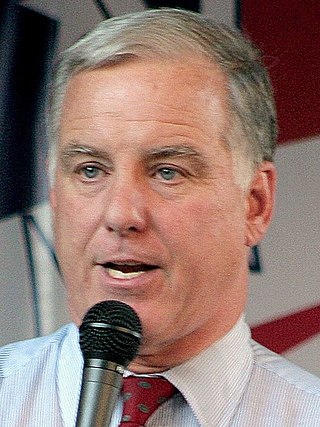
The 2004 Vermont Democratic presidential primary took place on March 2, 2004, as part of Super Tuesday along with other primaries and caucuses held throughout the country. Vermont's 15 pledged delegates were allocated based on the results of the primary.

